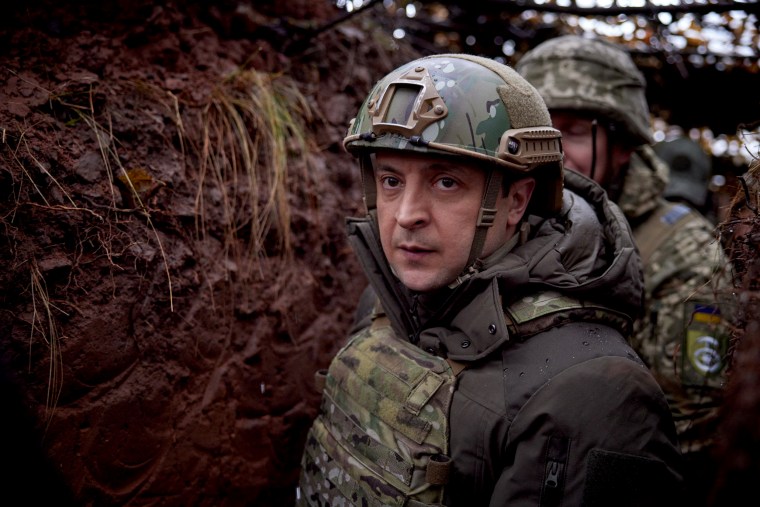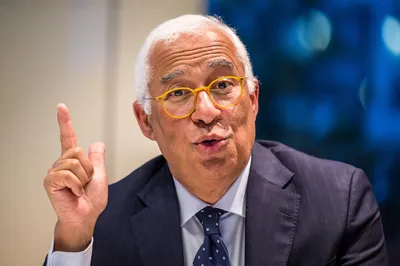> It’s a vacuous meme trotted out to defend the controversial commitment and use of forward deployed forces and creation of distant security perimeters.
> old canards intended to inflate threats to the American homeland.
> we are constantly bombarded by re-purposed, shopworn epigrams
UN lies about US military occupation of Syria, reporter calls out Ukraine hypocrisy
Published
2023-04-01During the Vietnam War, Lyndon Johnson defended the U.S. commitment by asserting that the countries of southeast Asia were like a row of dominos; if south Vietnam were to fall, it would tip over all its neighbors until all of Asia was communist. The problem, he explained, was that “Everything that happens in this world affects us because pretty soon it gets on our doorstep.”
President George W. Bush, in a major speech at the 89th Veterans of Foreign Wars convention in 2007, declared “Our strategy is this: we will fight them over there so we do not have to face them in the United States of America.” But the insurgency in Iraq was created by the 2003 U.S. invasion, which decapitated the regime and destroyed the capacity of the state to manage the country’s affairs, while unleashing Shi’a power and Iranian influence. This ignited a brutal Sunni insurgency carried out, in part, by tens of thousands of soldiers the U.S. threw out of their barracks and left to fend for themselves in an anarchic and violent environment.
The ideology and strategy of both Shi’a and Sunni insurgents had nothing to do with al-Qaida, let alone engaging SWAT teams in Dallas, or stealing our lawn furniture, as one of my former counterterrorism colleagues put it.
The mayhem, moreover, had nothing to do with 9/11. The fact that there was never another al-Qaida attack was not because the U.S. invaded Iraq; it was because of al-Qaida’s inability to follow up on its spectacular success. And that was a function of the loss of its support network in the U.S., the decimation of its top tier, and the swift tightening of security at U.S. borders.
Now we are told once again that U.S. troops have to be somewhere else to prevent fighters operating in that space from coming to the United States and waging war here.
- But they lack the capacity to do so and, more importantly, have urgent local goals that soak up resources, planning and organizational capacity, and face serious local constraints.
There is a legitimate debate about the presence of U.S. forces in Syria. But it should be premised on the value of the real things at stake and the cost of protecting those stakes.
-------------------------------------------------------------------------------------------
A new leader was made in the shade - and he made millions as a media mogul for a fictional comedy "Servant of The People"
=====================================================
Rewrite Thomas Friedman’s Syria Column, Win a Free Hand Grenade
Friedman's latest take on the Middle East uses both his "iron fist" and "midwife" lines of thinking

UPDATE: Read the winners!
I know, this is getting very old. I promise, after this, to not mention Thomas Friedman for a long time. But his column today was so old-school, it deserves some attention.
Friedman on the Middle East this morning:
Ever since the start of the Syrian uprising/civil war, I’ve cautioned that while Libya, Egypt, Yemen, Bahrain and Tunisia implode, Syria would explode if a political resolution was not found quickly. That is exactly what’s happening . . .
What to do? I continue to believe that the best way to understand the real options — and they are grim — is by studying Iraq, which, like Syria, is made up largely of Sunnis, Shiites, Christians and Kurds. Why didn’t Iraq explode outward like Syria after Saddam was removed? The answer: America.
Friedman’s idea seems to be that ethnically-fractured Middle Eastern countries like Syria would be more stable today, if they’d only been occupied first and had their nation-states built on a foundation of political compromises brokered by a strong military power like the United States. Veteran Friedman readers know that this line of thinking usually leads to either an “iron fist” column, or a “midwife” column. Today, he went with both.
Friedman used to believe that Arabs were not physically capable of resisting the urge toward ethnic violence. Years ago, in an effort to explain what he called his “Pottery Barn” metaphor (the “You break it, you own it” line used to describe Iraq, and later appropriated by Colin Powell), Friedman remarked that in the case of Iraq, the pottery pieces were broken long before we arrived. They were, he said, “broken . . . by 1,000 years of Arab-Muslim authoritarianism, three brutal decades of Sunni Baathist rule, and a crippling decade of U.N. sanctions. [Iraq] was held together only by Saddam’s iron fist.”
So you had all of these pottery pieces being held together by an iron fist, but we took away the iron fist, and the pottery pieces fell apart again. This could have been fixed, he wrote, by inserting our own iron first, and commencing therapy, but we screwed that up, resulting in a vacuum: “Had we properly occupied the country, and begun political therapy, it is possible an American iron fist could have held Iraq together long enough to put it on a new course,” he wrote. “But instead we created a vacuum by not deploying enough troops.”
That was six years ago. Friedman was very down on Iraq then. “There are so many people killing so many other people for so many different reasons,” he wrote, that Iraq is “not even the Arab Yugoslavia anymore. It’s Hobbes’s jungle.” It was a jungle, he wrote, where we were “throwing more good lives after good lives into a deeper and deeper hole filled with more and more broken pieces.”
An endlessly-deepening hole, containing broken pottery pieces at the bottom, rapidly filling up with the dead bodies of good people. That is a very strange and depressing image, and it’s what Friedman saw in Iraq in 2006.
Now, however, Iraq looks good compared to Syria. In an attempt to explain how that could be, given that six years ago it looked quite a lot like our invasion of Iraq triggered a wave of ethnic violence, Friedman is re-explaining the history of the Iraq war.
It turns out that when we went into Iraq, we weren’t trying to put back together the broken pieces of the national pottery that had been held together for so long by Saddam’s iron fist. Rather, what we were doing was . . . well, let him explain (emphasis his):
For better and for worse, the United States in Iraq performed the geopolitical equivalent of falling on a grenade — that we triggered ourselves. That is, we pulled the pin; we pulled out Saddam; we set off a huge explosion in the form of a Shiite-Sunni contest for power. Thousands of Iraqis were killed along with more than 4,700 American troops, but the presence of those U.S. troops in and along Iraq’s borders prevented the violence from spreading. Our invasion both triggered the civil war in Iraq and contained it at the same time.
So Saddam wasn’t an iron fist holding together broken pottery pieces at all, but the pin in a metaphorical grenade in which the explosive power of inevitable civil war was contained. Why you wouldn’t just leave a pin in such a grenade is anyone’s guess, but we didn’t – we pulled the pin and then sent 4,700 young Americans to throw their bodies on the explosion (i.e. the civil war). We contained the destructive power of this civil war by physically sealing off the borders, letting the fire of ethnic conflict “burn itself out,” and by brokering a power-sharing agreement between the Kurds, Sunnis, and Shias. Then we left.
(However, Friedman notes grimly, “it is not at all clear that the deal will survive our departure,” which would mean we didn’t dive on a grenade at all, but merely set off an explosion that will ultimately destroy the entire region – but for now, termporarily, the jumping-on-a-grenade-we-ourselves-threw metaphor is holding.)
The lesson Friedman takes from all of this is that if you’re trying to knock over an iron fist which is also a pin in a grenade, what you really need is a midwife. “If you’re trying to topple one of these iron-fisted, multisectarian regimes,” he writes, “it really helps to have an outside power that can contain the explosions and mediate a new order.”
By which he means a midwife. Who is also a fireman:
There is no outside power willing to fall on the Syrian grenade and midwife a new order. So the fire there rages uncontrolled . . .
By the end of the piece, Friedman suggests that what we really need to do is call Syria’s lawyer, to see if he can broker an arrangement that would contain the fire, which in turn would prevent acid from flying out of the country and dissolving the “bonds” that are standing between the Middle East and chaos:
It’s a real long shot, but we should keep trying to work with Russia — Syria’s lawyer — to see if together we can broker a power-sharing deal inside Syria and a United Nations-led multinational force to oversee it. Otherwise, this fire will rage on and spread, as the acid from the Shiite-Sunni conflict eats away at the bonds holding the Middle East together and standing between this region and chaos.
I’ll be awarding a replica hand grenade paperweight to the person who, in the comments section below, does the best one-paragraph summary of the metaphor-fest in today’s Friedman piece. And please, if you do a submission, don’t forget to check back to see if you won, so you can send me contact information.






No comments:
Post a Comment